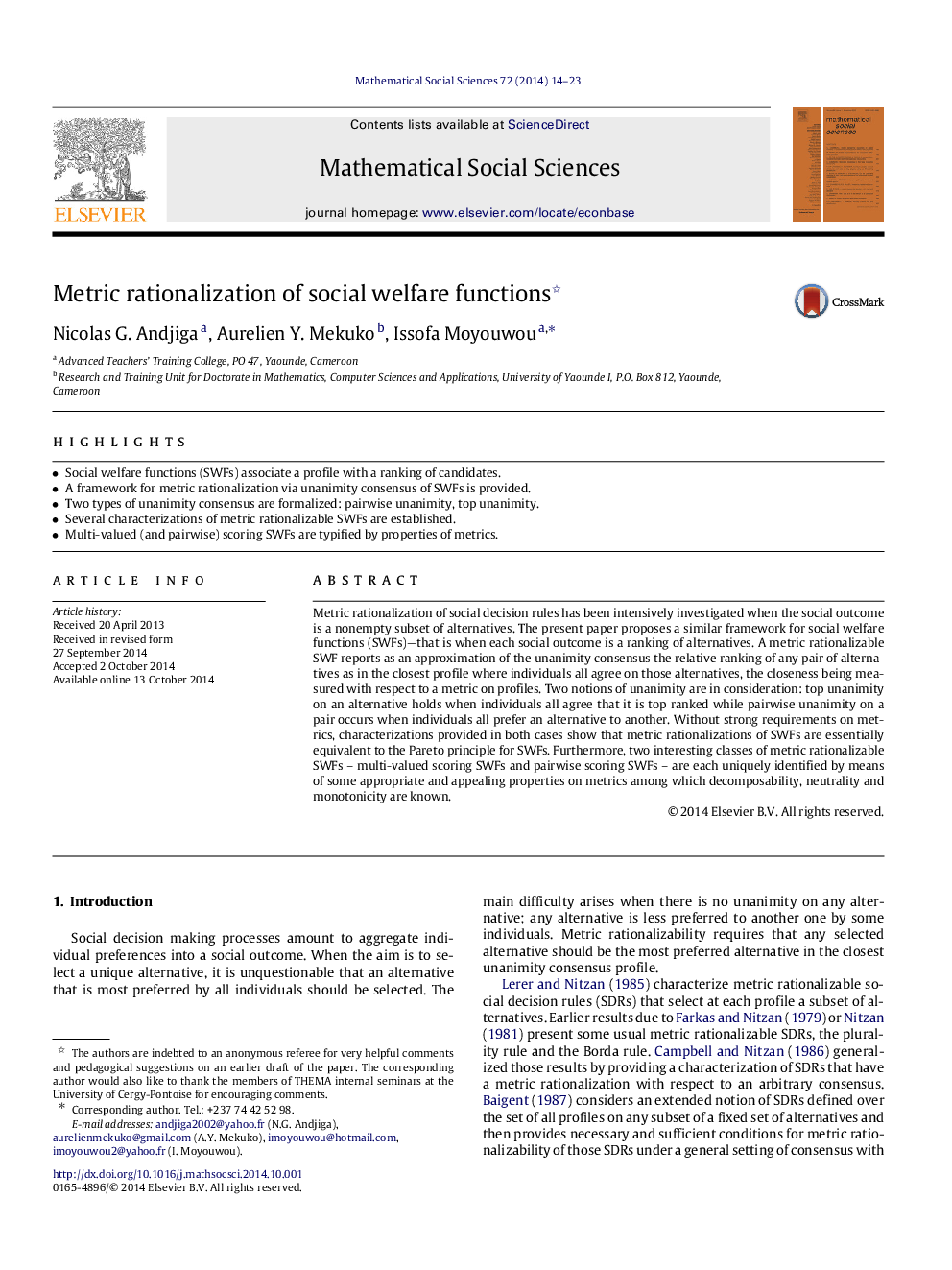| Article ID | Journal | Published Year | Pages | File Type |
|---|---|---|---|---|
| 972560 | Mathematical Social Sciences | 2014 | 10 Pages |
•Social welfare functions (SWFs) associate a profile with a ranking of candidates.•A framework for metric rationalization via unanimity consensus of SWFs is provided.•Two types of unanimity consensus are formalized: pairwise unanimity, top unanimity.•Several characterizations of metric rationalizable SWFs are established.•Multi-valued (and pairwise) scoring SWFs are typified by properties of metrics.
Metric rationalization of social decision rules has been intensively investigated when the social outcome is a nonempty subset of alternatives. The present paper proposes a similar framework for social welfare functions (SWFs)—that is when each social outcome is a ranking of alternatives. A metric rationalizable SWF reports as an approximation of the unanimity consensus the relative ranking of any pair of alternatives as in the closest profile where individuals all agree on those alternatives, the closeness being measured with respect to a metric on profiles. Two notions of unanimity are in consideration: top unanimity on an alternative holds when individuals all agree that it is top ranked while pairwise unanimity on a pair occurs when individuals all prefer an alternative to another. Without strong requirements on metrics, characterizations provided in both cases show that metric rationalizations of SWFs are essentially equivalent to the Pareto principle for SWFs. Furthermore, two interesting classes of metric rationalizable SWFs–multi-valued scoring SWFs and pairwise scoring SWFs–are each uniquely identified by means of some appropriate and appealing properties on metrics among which decomposability, neutrality and monotonicity are known.
